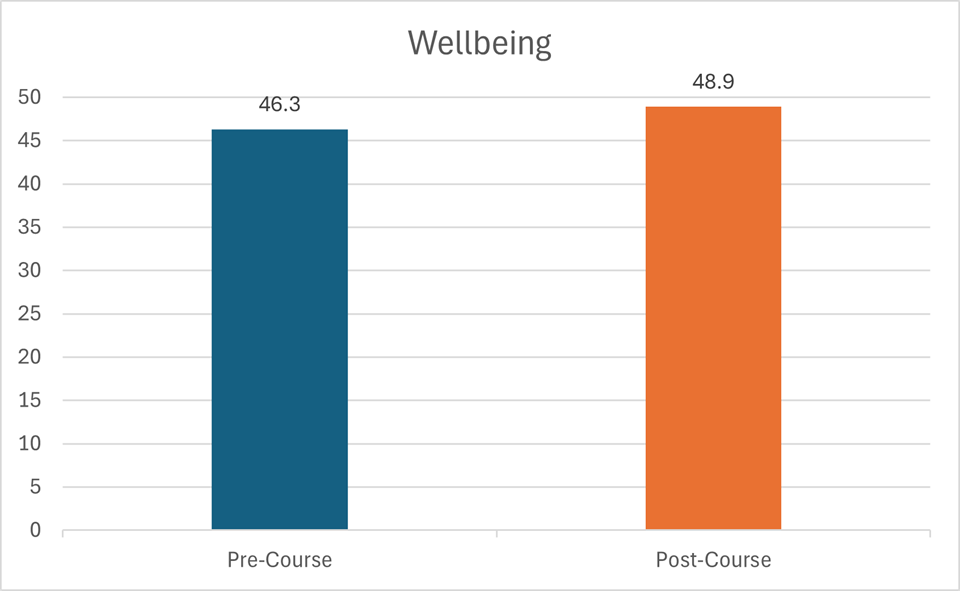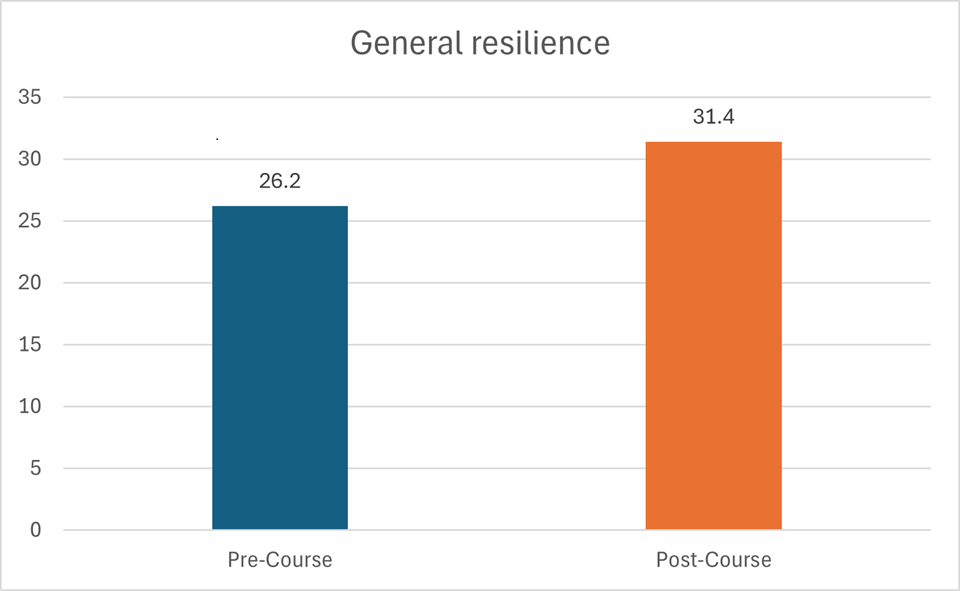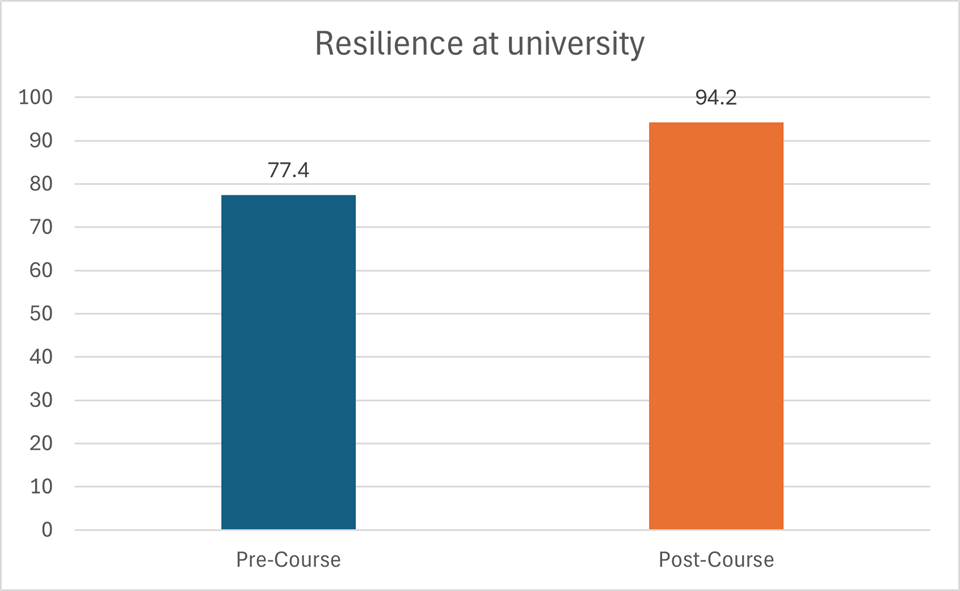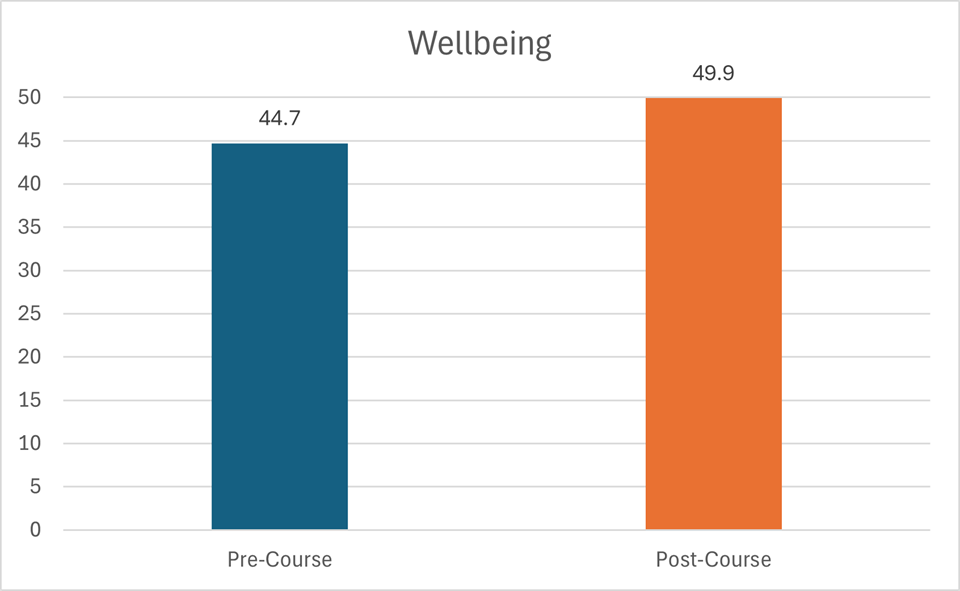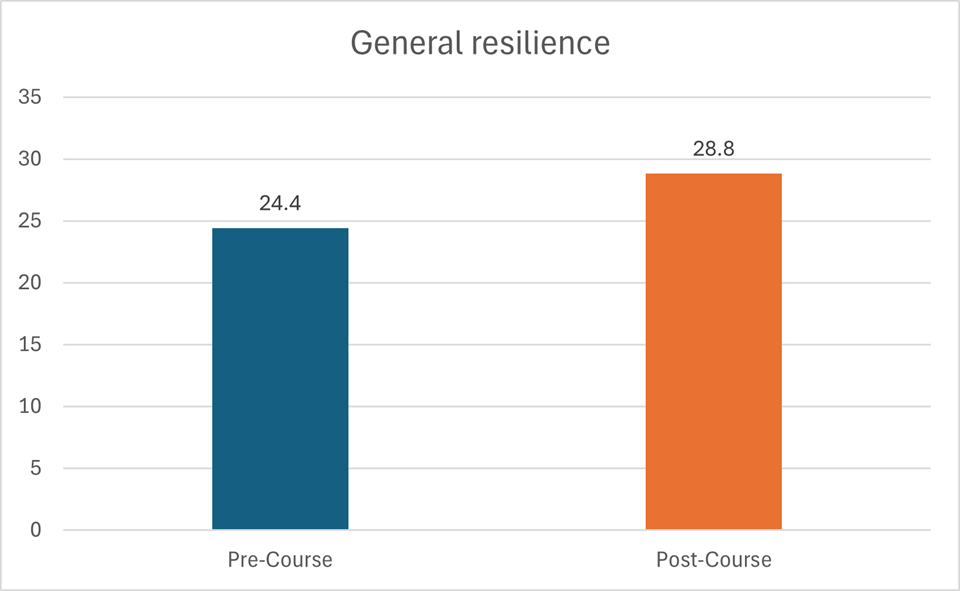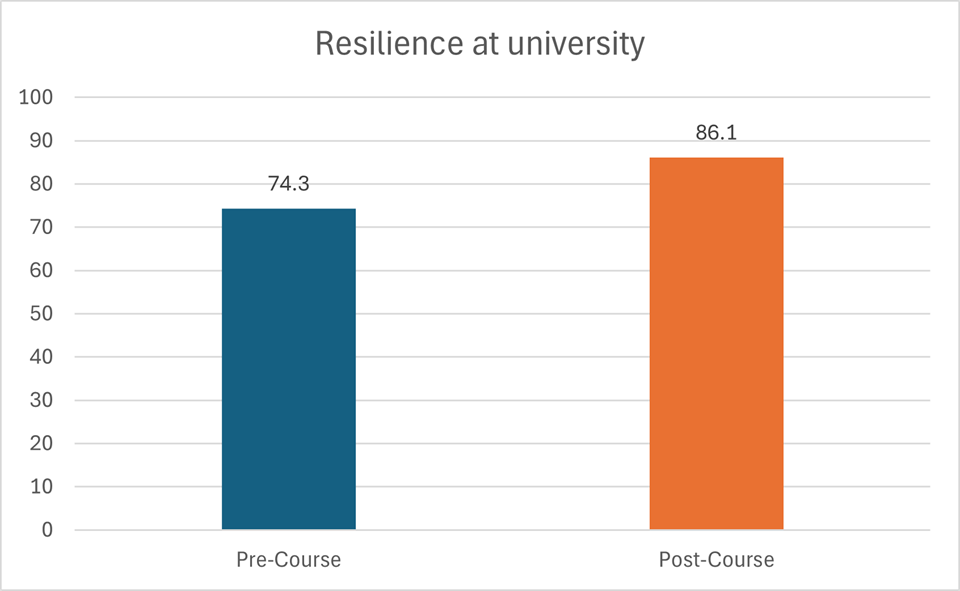Success
Our work to support students and promote their success encompasses activities focusing on developing their academic and metacognitive skills, promoting wellbeing and offering financial support.
Read about the evaluations of the following:
Academic Success Coaching
Our Academic Success Coaching initiative is designed to help address the awarding gap for our Black, Asian, Ethnic Minority, and low-household income students, who felt they needed support to reach their academic potential.
The initiative is delivered through 1:1 coaching sessions, group workshops and online resources and focuses on independent learning strategies and metacognition. Our evaluation sought to understand if the 1:1 sessions had impacted areas such as understanding concepts, motivation to study, setting clear goals and study skills.
What we did:
We collected pre and post survey data from students (unmatched) who had participated in Academic Success Coaching. From the 96 students who accessed coaching, 67 (70%) completed the pre-programme survey and 25 (26%) completed the post-programme survey.
What we found:
Our surveys found that overall, the programme had increased the skills and knowledge that Academic Success Coaching was aiming to achieve:
38%
increase in understanding concepts or ideas.
166%
increase in motivation to study when needed.
89%
increase in clarity of what needs to be accomplished during the next week.
31%
increase in goal setting.
217%
increase in using study skills effective for the student.
138%
increase in ability to assess learning after studying.
I found it to be a very supportive environment […]. I felt as if I finished the coaching with more tools and confidence to help me reach my goals, mainly through shifting my mindset and breaking bad habits which we worked on a lot.
What next
Our evaluation identified the following areas to address in order to improve the scheme:
- Consider expansion of the scheme: Our evaluation indicated that participants are successfully developing vital metacognitive and study skills. The team will consider a possible expansion of the scheme, both in terms of student numbers and whether to offer additional holistic support.
- Consider academic school: More work to undertake further research to explore how the academic school that the participant belongs to might affect their support needs.
- Increase post-survey responses: Response rates to the post-survey were much lower than the pre-survey presenting a significant response bias risk. The team will explore options to boost the numbers of participants completing the post-survey.
#Me
#Me is a 12-week peer-support course which aims to improve the mental wellbeing of students, by providing the ‘middle ground’ between chatting to a friend and formal counselling.
The course is preventative in nature; it covers various topics of mental health and wellbeing, with each of the hourly sessions being facilitated by student volunteers, who are supported by the Course Coordinator. In 2024/25, two courses took place: 231 students signed up as either participants or facilitators, and 35 peer-support groups were formed.
What we did:
The #Me team asked participants to complete a pre, post and follow-up (3 months) survey, and a feedback form. The survey measured mental wellbeing, general resilience and resilience at university using the Connor-Davidson Resilience Scale (CD – RISC 10), a ten item self-report scale that assesses psychological resilience, and the Warwick-Edinburgh Mental Wellbeing Scale. The feedback form captured implementation evaluation and participants’ experience of taking part. 132 students completed the pre and post-survey evaluation.
What we found:
The students’ wellbeing, general resilience and resilience at university all increased following the courses: The following graphs illustrate the changes in students' overall average scores across the individual questionnaires.
Course 1
Course 1 wellbeing chart descriptive text
- Pre-course 46.3
- Post-course 48.9
Course 1 general resilience descriptive text
- Pre-course 26.2
- Post-course 31.4
Course 1 resilience at university descriptive text
- Pre-course 77.4
- Post-course 94.2
Course 2
Course 2 wellbeing chart descriptive text
- Pre-course 44.7
- Post-course 49.9
Course 2 general resilience descriptive text
- Pre-course 24.4
- Post-course 28.8
Course 2 resilience at university descriptive text
- Pre-course 74.3
- Post-course 86.1
When asked about ways in which the course had helped them, out of 132 students :
74
said that they were more likely to participate in further wellbeing activities and reach out for help if needed.
71
indicated that they felt that they could express themselves in a safe and inclusive environment.
65
felt that the course had helped them socially.
45
felt encouraged to engage in wider activities offered by the university.
The course also influenced participants’ uptake of regular exercise/healthy habits: this increased from 65% to 80% for those on course 1, and from 54% to 73% for those on course 2.
Finally, 131/132 students told us that they would recommend the course to others.
What next
Given the positive participant experience of the programme, the #Me team plan to implement the following:
- Greater encouragement around wider engagement: The team will explore whether content could be adapted to more effectively support participants to engage in wider university activities.
- Support Resilience development in Course 1: The team will monitor the changes in participants’ emotional resilience development in Course 1 for possible changes that need to be made.
Financial support
We offer a variety of scholarships and bursaries designed to support students from low-income backgrounds and underrepresented groups.
Our bursaries and scholarships aim to ensure that students who receive financial support are just as likely as their peers to complete their studies and achieve good Degree Outcomes. We hope that they will lead to:
- Reduced financial stress
- Increased time for academic work
- Greater participation in university life
- Improved access to work experience and career development opportunities
Loughborough Bursary for Unpaid Placements (LBUP)
Whilst Loughborough University does not support unpaid placements, we recognise that such opportunities remain prevalent in certain industry sectors. To help level the playing field for our students, we offer bursaries of up to £3,667 for those in receipt of the Loughborough University Bursary. In 2024/25, the scheme supported 26 students, contributing to our wider strategic goals around social mobility, equitable access to career-enhancing experiences, and closing graduate outcomes gaps.
What we did:
We conducted a short post-placement survey to understand the impact of the bursary and gather suggestions for improvement. 22 out of 26 recipients (85%) responded.
What we found:
The bursary is successfully addressing financial barriers that disproportionately affect APP target students when accessing career-enhancing placements.
When asked about how the bursary had helped them, out of the 22 respondents:
17
told us that it had eased their financial pressures.
17
had used the bursary to help them with travel costs.
16
had used the bursary to help with living costs, such as food shopping.
13
indicated that it enabled them to take part in an unpaid placement of their choice.
To improve the scheme:
13
students felt the bursary amount should be increased to reflect rising living and travel costs.
15
students recommended that the University explore ways to offer paid placements in key sectors.
12
students suggested that the scheme should be more widely promoted to improve awareness and uptake.
The Lboro Bursary for Unpaid Placements honestly made a huge difference during my Part I year. It took a lot of financial pressure off and meant I could take on a placement that I was really excited about, even though it was unpaid. Without the bursary, I probably would’ve had to turn it down or find extra work on the side, which would’ve made things a lot harder. It gave me the freedom to focus on learning and making the most of the experience, and I’m really grateful for that support.
What next
Our evaluation highlighted what impact the scheme had made on the students and how the scheme could be improved:
- Review the bursary amount: We will assess the bursary amount to ensure it remains aligned with increasing cost-of-living pressures.
- Enhance communications: We will focus particularly on using academic departments and connections to increase communication and awareness of the scheme among students.
